Disc Replacement ( Cervical /Lumber) cost in Poland varies between PLN 41248 to 51065 (USD 10210 to USD 12640)approx
.Disk Replacement involves changing a degenerative disc causing chronic back pain with metal or plastic intervertebral disc. This surgery brings back movement in a specific part of the vertebral column. This ensures mobility in the spine. The artificial disk has a sliding core surrounded by two metal endplates. Prior to the surgery, the patient must undergo a physical checkup. The anaesthesiologist evaluates the patient. He may be required to cease some medications 10 days prior to the surgery and should inform the doctor about any prior medical conditions that he may be having
Poland has not only emerged as a sought-after tourist destination but people are now combining their holidays with varied medical treatments and surgeries. It has world-class medical and travel infrastructure, some of the best orthopaedic spine surgeons, and wonderfully welcoming people. The hospitals have the best cutting-edge equipment in the world. Some of the good hospitals where you can get orthopaedic spine surgeries like Disc Replacement in Poland done are as follows: KCM clinic, Jelenia Gora and KCM Clinic, Wroclaw All Medica, Nowy Targ Carolina Medical Center, Warsaw Szpital Euromedic, Katowice Orthosport Clinic, Lodz Medycyna Estetyczna Joanna Obidzinska, Warsaw Scanmed Szpital św. Rafała, Krakow Przychodnia Medyczna Nasmed, Warsaw Medicus Estetic - Tychy Private Hospital Pulsmed Ltd., Lodz
Disk replacement cost in Poland is US$ 12000 which is much lesser than disk replacement cost in Germany i.e., US$ 18,000 to US$ 36,000.
| City | Minimum Cost | Maximum Cost |
|---|---|---|
| Jelenia Gora | USD 10210 | USD 12580 |
| Warsaw | USD 11830 | USD 12640 |
| Country | Cost | Local_currency |
|---|---|---|
| Greece | USD 18000 | Greece 16560 |
| India | USD 5450 | India 453168 |
| Poland | USD 10210 | Poland 41248 |
| South Korea | USD 25000 | South Korea 33567250 |
| Spain | USD 21910 | Spain 20157 |
| Thailand | USD 12400 | Thailand 442060 |
| Turkey | USD 6100 | Turkey 183854 |
| United Arab Emirates | USD 22120 | United Arab Emirates 81180 |
| United Kingdom | USD 40000 | United Kingdom 31600 |
Treatment cost
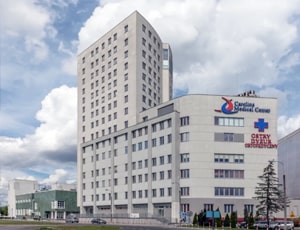
The cost for Disc Replacement ( Cervical /Lumber) ranges from USD 11830 - 12640 in Carolina Medical Center
Apart from in-detail treatment procedures available, Carolina Medical Center located in Warsaw, Poland has a wide variety of facilities available for International Patients. Some of the facilities which are provided by them are Accommodation, Airport Transfer, Choice of Meals, Interpreter, SIM, TV inside room. Also listed below are some of the most prominent infrastructural details:
DOCTORS IN 7 SPECIALITIES
FACILITIES & AMENITIES

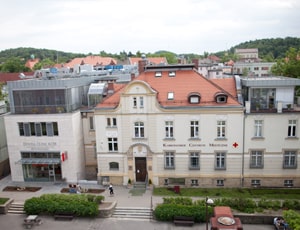
The cost for Disc Replacement ( Cervical /Lumber) ranges from USD 10210 - 12580 in KCM Clinic
KCM Clinic located in Jelenia Gora, Poland is accredited by ISO. Also listed below are some of the most prominent infrastructural details:
DOCTORS IN 9 SPECIALITIES
FACILITIES & AMENITIES
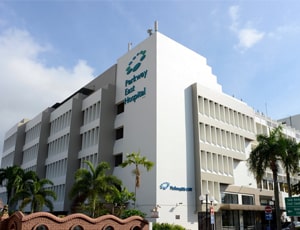
Parkway East Hospital located in Joo Chiat Pl, Singapore is accredited by JCI. Also listed below are some of the most prominent infrastructural details:
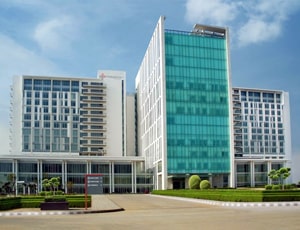
Types of Disc Replacement ( Cervical /Lumber) in Medanta - The Medicity and its associated cost
| Treatment Option | Approximate Cost Range (USD) | Approximate Cost Range (INR) |
|---|---|---|
| Disc Replacement (Overall) | 7319 - 11278 | 590702 - 909722 |
| Cervical Disc Replacement | 5619 - 9011 | 466179 - 725991 |
| Lumbar Disc Replacement | 7254 - 11188 | 595462 - 903995 |
DOCTORS IN 14 SPECIALITIES
FACILITIES & AMENITIES
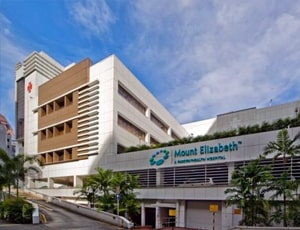
Mount Elizabeth Hospital located in Singapore, Singapore is accredited by JCI. Also listed below are some of the most prominent infrastructural details:
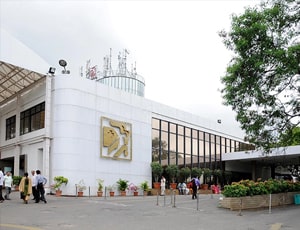
Types of Disc Replacement ( Cervical /Lumber) in Apollo Hospitals and its associated cost
| Treatment Option | Approximate Cost Range (USD) | Approximate Cost Range (INR) |
|---|---|---|
| Disc Replacement (Overall) | 7449 - 11074 | 599782 - 926564 |
| Cervical Disc Replacement | 5537 - 9166 | 465450 - 728201 |
| Lumbar Disc Replacement | 7294 - 11069 | 611745 - 915634 |
DOCTORS IN 14 SPECIALITIES
FACILITIES & AMENITIES
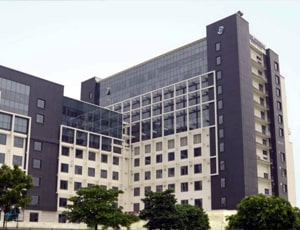
Types of Disc Replacement ( Cervical /Lumber) in Venkateshwar Hospital and its associated cost
| Treatment Option | Approximate Cost Range (USD) | Approximate Cost Range (INR) |
|---|---|---|
| Disc Replacement (Overall) | 6602 - 10150 | 542577 - 835738 |
| Cervical Disc Replacement | 5089 - 8142 | 415740 - 667554 |
| Lumbar Disc Replacement | 6567 - 10164 | 540841 - 830930 |
DOCTORS IN 13 SPECIALITIES
FACILITIES & AMENITIES
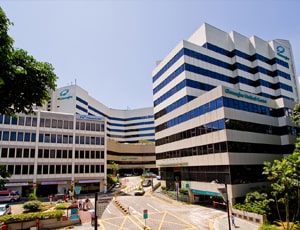
Gleneagles Hospital located in Napier Road, Singapore is accredited by JCI. Also listed below are some of the most prominent infrastructural details:
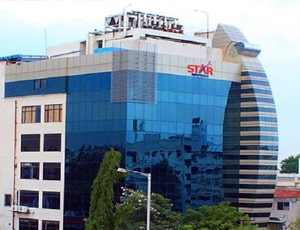
Types of Disc Replacement ( Cervical /Lumber) in Star Hospitals and its associated cost
| Treatment Option | Approximate Cost Range (USD) | Approximate Cost Range (INR) |
|---|---|---|
| Disc Replacement (Overall) | 6003 - 9483 | 497687 - 772449 |
| Cervical Disc Replacement | 4613 - 7522 | 383868 - 604639 |
| Lumbar Disc Replacement | 5999 - 9447 | 504042 - 770688 |
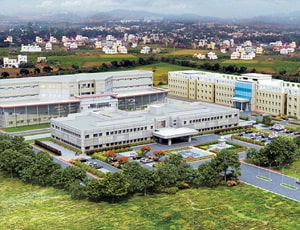
Types of Disc Replacement ( Cervical /Lumber) in Global Health City and its associated cost
| Treatment Option | Approximate Cost Range (USD) | Approximate Cost Range (INR) |
|---|---|---|
| Disc Replacement (Overall) | 7161 - 11095 | 587041 - 910000 |
| Cervical Disc Replacement | 5678 - 8953 | 461448 - 740950 |
| Lumbar Disc Replacement | 7180 - 11035 | 606649 - 914917 |
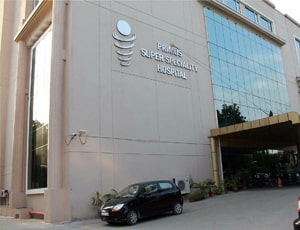
Types of Disc Replacement ( Cervical /Lumber) in Primus Super Speciality Hospital and its associated cost
| Treatment Option | Approximate Cost Range (USD) | Approximate Cost Range (INR) |
|---|---|---|
| Disc Replacement (Overall) | 6611 - 10169 | 540712 - 832194 |
| Cervical Disc Replacement | 5070 - 8101 | 417632 - 667020 |
| Lumbar Disc Replacement | 6619 - 10182 | 541258 - 834160 |
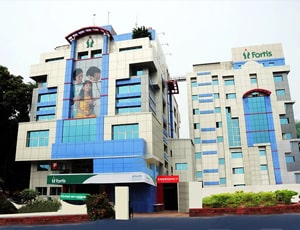
Types of Disc Replacement ( Cervical /Lumber) in Fortis Malar Hospital and its associated cost
| Treatment Option | Approximate Cost Range (USD) | Approximate Cost Range (INR) |
|---|---|---|
| Disc Replacement (Overall) | 6612 - 10196 | 543125 - 833321 |
| Cervical Disc Replacement | 5094 - 8121 | 416178 - 664491 |
| Lumbar Disc Replacement | 6612 - 10170 | 540562 - 831413 |
DOCTORS IN 9 SPECIALITIES
FACILITIES & AMENITIES
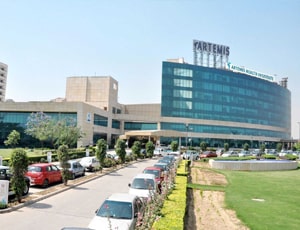
Types of Disc Replacement ( Cervical /Lumber) in Artemis Health Institute and its associated cost
| Treatment Option | Approximate Cost Range (USD) | Approximate Cost Range (INR) |
|---|---|---|
| Disc Replacement (Overall) | 7399 - 11375 | 612623 - 909882 |
| Cervical Disc Replacement | 5742 - 8961 | 461578 - 753982 |
| Lumbar Disc Replacement | 7421 - 11043 | 605492 - 913610 |
DOCTORS IN 15 SPECIALITIES
FACILITIES & AMENITIES

Types of Disc Replacement ( Cervical /Lumber) in Sterling Wockhardt Hospital and its associated cost
| Treatment Option | Approximate Cost Range (USD) | Approximate Cost Range (INR) |
|---|---|---|
| Disc Replacement (Overall) | 6572 - 10164 | 540480 - 835827 |
| Cervical Disc Replacement | 5091 - 8107 | 416066 - 668117 |
| Lumbar Disc Replacement | 6614 - 10192 | 540996 - 831626 |
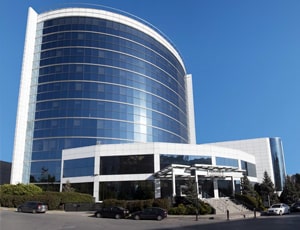
Types of Disc Replacement ( Cervical /Lumber) in Medicana International Istanbul and its associated cost
| Treatment Option | Approximate Cost Range (USD) | Approximate Cost Range (TRY) |
|---|---|---|
| Disc Replacement (Overall) | 5566 - 10021 | 167371 - 304097 |
| Cervical Disc Replacement | 3427 - 7986 | 100133 - 238724 |
| Lumbar Disc Replacement | 5732 - 10113 | 171324 - 309142 |
DOCTORS IN 10 SPECIALITIES
FACILITIES & AMENITIES
The spinal cord is a linear arrangement of many small bones known as vertebrae. These vertebrae consist of spaces between them known as intervertebral spaces. They are filled with cartilaginous structures that provide a cushioning effect to the vertebrae and support the movement of the spine. These cartilaginous structures are called Intervertebral discs.
Any pathology of the intervertebral discs such as disc herniation (slipping of the disc from between the vertebrae), ruptured disc, or degenerative disc disease may cause severe back pain due to nerve impingement, indicating the need for either partial or total disc replacement. In partial disc replacement surgery, only a portion of the cartilaginous disc is replaced by the artificial disc, while the total disc is replaced in the total disc replacement surgery.
Cervical disc degeneration and disc rupture may cause chronic neck pain radiating towards the arm. Thoracic disc degeneration may cause chronic upper/ mid back pain while lumbar disc degeneration may cause chronic lower back pain.
Depending on the site of injury, any one of the following three types of incisions are made:
Once the incision is made, the following steps are performed:
Step 1: The organs are retracted once an incision is made to enable visibility
Step 2: The damaged or protruding disc is removed
Step 3: An artificial disc in place of excised disc is placed
Step 4 The artificial disc is secured to the adjacent vertebrae
Step 5: A sealing material between the frictional surfaces of the artificial disc is placed, if required
Step 6: The incision is surgically closed
You may be discharged after two to four days, after a thorough evaluation by the physical therapists. You are taught the proper techniques of getting in and out of bed before discharge from the hospital. You should avoid bending or twisting for the first two to four weeks to avoid straining the surgical site. You may be advised to use braces if your condition requires support in the lower back.
You may recover and get back to normal activities within three weeks after disc replacement surgery. Studies reveal that patients who successfully undergo total disc replacement surgery remain asymptomatic and free from chronic back pain for an average of 8.7 years.
The recovery time after total disc replacement is significantly less than that of spinal fusion surgery. The mobility is not compromised, and the prognosis is good. The success rate of the disc replacement surgery is around 98 percent.
Ask your healthcare adviser for the best multiple options and choose the one that meets your expectations
The average cost of Disc Replacement ( Cervical /Lumber) in Poland starts from USD 12500 In Poland, Disc Replacement ( Cervical /Lumber) is conducted across many multispecialty hospitals.
Disc Replacement ( Cervical /Lumber) package cost in Poland has different inclusions and exclusions. The Disc Replacement ( Cervical /Lumber) package cost usually includes all the expenses related to pre and post surgery expenses of the patient. The Disc Replacement ( Cervical /Lumber) procedure in Poland includes the fees of the surgeon, hospitalization and anesthesia as well. Extended hospital stay, complications after the surgery or new diagnosis may affect the overall cost of Disc Replacement ( Cervical /Lumber) in Poland.
Many hospitals in Poland perform Disc Replacement ( Cervical /Lumber). For quick reference, the following are some of the leading hospitals for Disc Replacement ( Cervical /Lumber) in Poland:
Upon discharge from the hospital after Disc Replacement ( Cervical /Lumber) in Poland, the patients are advised to stay for about 21 days for recovery. During this time, the patient undergoes medical tests and consultations. this is to ensure that the treatment was successful and the patient us safe to return.
Apart from the Disc Replacement ( Cervical /Lumber) cost, the patient may have to pay for additional daily expenses such as for guest house after discharge and meals. The per day extra expenses in Poland per person are about USD 50 per person.
Some of the best cities in Poland which offer Disc Replacement ( Cervical /Lumber) are:
After Disc Replacement ( Cervical /Lumber), the patient is supposed to stay for about 3 days in the hospital for recovery and monitoring. The doctors team review the patient's recovery during this time with the help of blood tests and imaging scans. Once they feel that everything is on track, the patient is discharged.
There are more than 2 hospitals that offer Disc Replacement ( Cervical /Lumber) in Poland. These hospitals have propoer infrastructure as well as offer good quality of services when it comes to Disc Replacement ( Cervical /Lumber) Apart from good services, the hospitals are known to follow all standard and legal guidelines as dictated by the local medical affairs body or organization.
Some of the renowned doctors for Disc Replacement ( Cervical /Lumber) in Poland are: